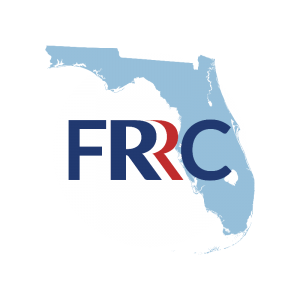

OP-ED
At Miami job fair for those once incarcerated, businesses can give hard workers a second chance | Opinion
By Desmond Meade, FRRC Executive Director
Published in the Miami Herald on June 7, 2022
OP-ED
At Miami job fair for those once incarcerated, businesses can give hard workers a second chance | Opinion
By Desmond Meade, FRRC Executive Director
Published in the Miami Herald on June 7, 2022

Miami-Dade County has partnered with other organizations to host jobs expo to help former prisoners find employment.

Miami-Dade County has partnered with other organizations to host jobs expo to help former prisoners find employment.

Miami-Dade County has partnered with other organizations to host jobs expo to help former prisoners find employment.
Nearly 7 million people in Florida have a record. Every year, almost 1 million Americans are released from state and federal prison. This is an important moment — one of hope for a better life and a safer community.
Unfortunately, formerly incarcerated citizens are almost five times more likely to experience unemployment, and 10 times more likely to face homelessness than the general population. These statistics are not just numbers; they are moms and dads, aunts and uncles, sons and daughters, neighbors, friends and colleagues.
Based on these statistics, second-chance employment, workforce development and community re-integration should be at the center of our conversation. Issues such as public safety, economic mobility, social equality, etc., are affected by how well we reintegrate people with prison records into society.
We must do better as a society. That is why the Florida Rights Restoration Coalition is working with stakeholders in our community and hosting a job fair from 9:30 a.m. to 2:30 p.m., Friday, June 10, at Miami-Dade County’s Main Library. This event will help individuals and companies in the community who are looking to move forward with their lives and improve their businesses.
It is of vital importance to change the narrative and personal biases that many of us have about formerly incarcerated citizens. Studies show people with convictions get promotions and exhibit loyalty at the same rate as people without convictions. In addition, people who find work post-conviction are almost three times less likely to re-offend than those who are not employed. This should give us hope.
Instead of a punitive, biased system that marginalizes returning citizens, we can create something built on our common humanity — one person, place of worship and government policy at a time.
These and other ideas acknowledge that a successful transition for a returning citizen is about more than not being re-arrested. A successful transition means a productive job. It means returning to one’s family with dignity, being a provider and a role model. It means having a place at society’s table. And it means believing that you are a stakeholder. This has nothing to do with politics and everything to do with our common morality, living up to the tenets of our faith and working together a step at a time to confront the most hurtful parts of our history with hope for a better future.
FRRC is working at the state and local levels to remove barriers to employment and create a better Florida for everyone. Earlier this year, we introduced legislation to remove barriers to occupational licensing for returning citizens and to make it easier for businesses to fill job openings. The Job Licensing Bill prohibits occupational licensing boards in Florida from denying an application simply because of a person’s conviction. Under the legislation, licensing boards would be allowed to deny applications because of a person’s past criminal record only if the applicant is convicted of a felony that directly relates to the occupation for which they are seeking a license.
As we work to enact these reforms at the state level, we also continue to partner with cities and counties such as Miami-Dade. By working together at the local level, we can help ensure that South Florida is a community of second chances.
Event Details:
Who: Mayor Daniella Levine Cava, Florida Rights Restoration Coalition, Miami-Dade County Community Action and Human Services Department’s Office of Neighborhood Safety and CareerSource of South Florida.
What: 305 Second Chance Job & Resource Expo
When: Friday, June 10, 2022, 9:30 a.m. to 2:30 p.m.
Where: The Miami-Dade County Public Library System’s Main Library – 101 W. Flagler Street, Miami, Florida 33130
Miami-Dade Community Action and Human Services Department (CAHSD)
CAHSD is the largest provider of comprehensive social services in Miami-Dade County. CAHSD’s mission is to empower families, individuals, and communities through its services. To learn more about CAHSD programs, call 786-469-4600 or visit online at www.miamidade.gov/socialservices.
SHARE THE NEWS

About the Florida Rights Restoration Coalition
FRRC is a grassroots, membership organization run primarily by Returning Citizens (Formerly Convicted Persons) who are dedicated to ending the disenfranchisement and discrimination against people with convictions and creating a more comprehensive and humane reentry system that will enhance successful reentry, reduce recidivism, and increase public safety.
For interview requests or further information contact Kinyatta Wright at kinyatta@floridarrc.org, or at the phone number, 407-664-6451.
